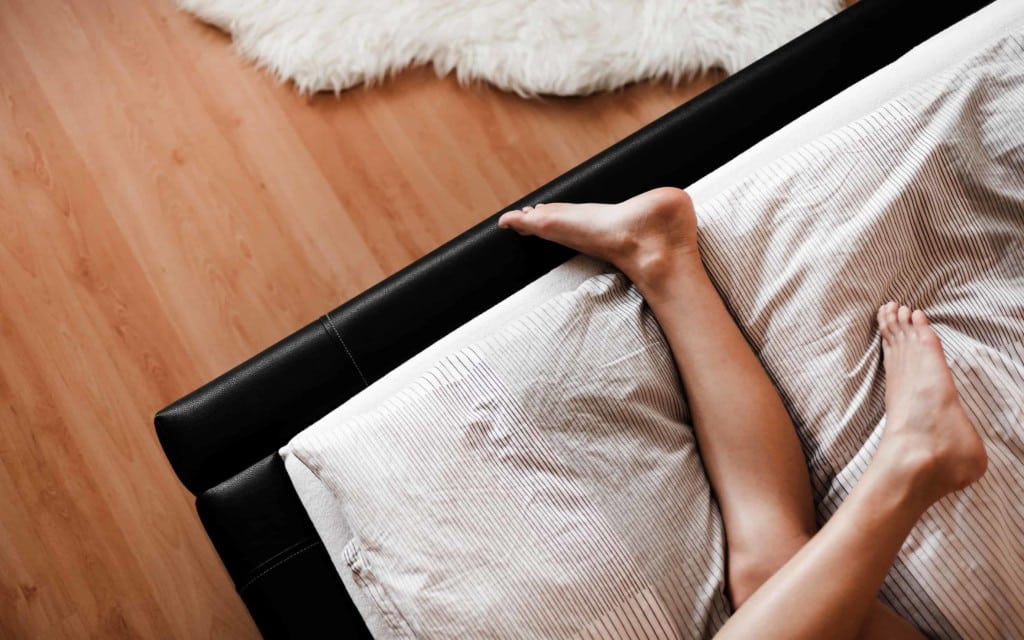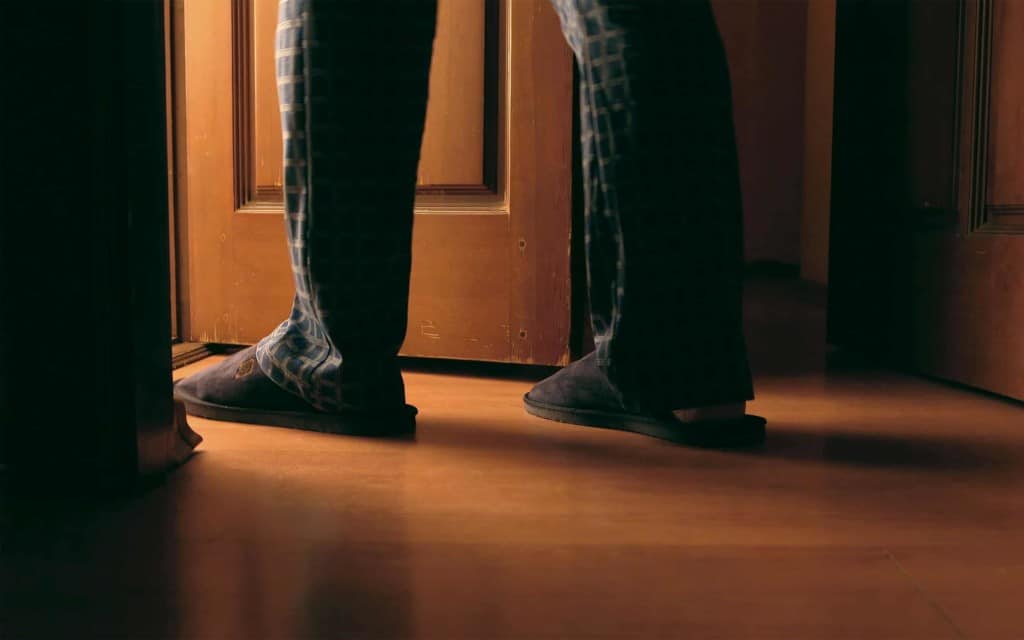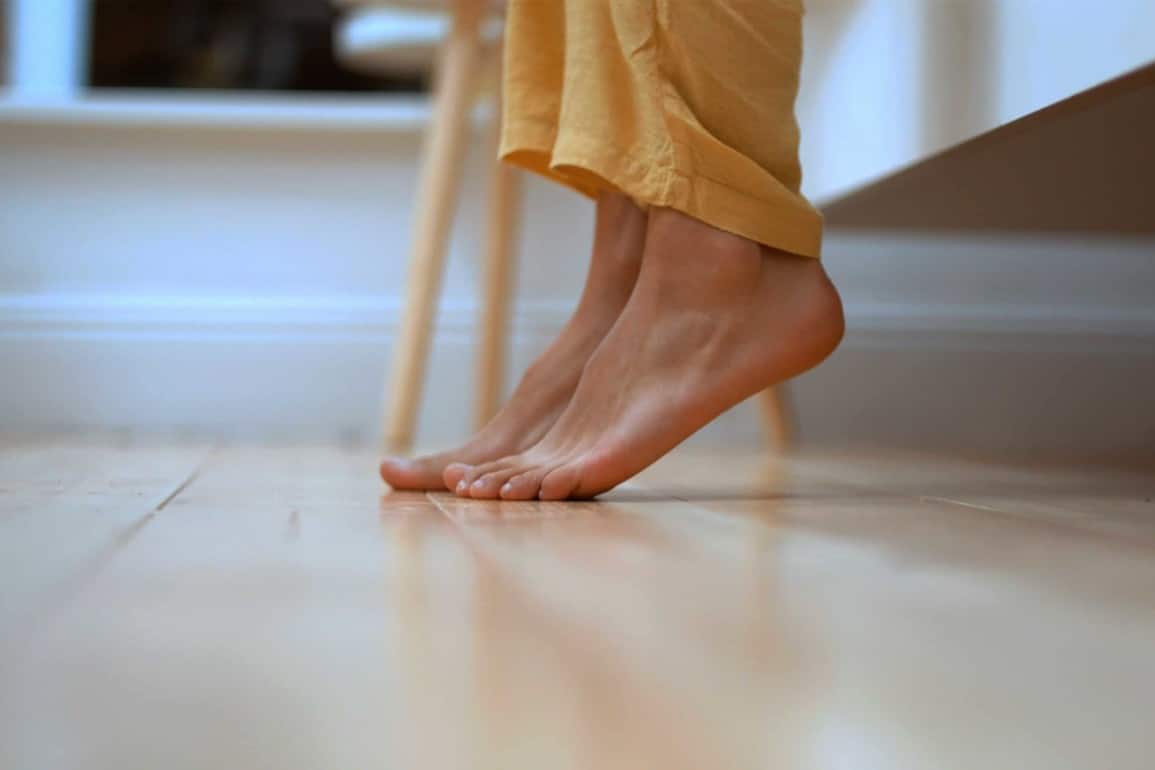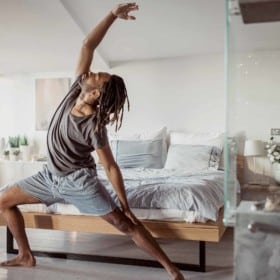Otherwise known as somnambulism, sleepwalking is a complex disorder that happens when a person hops out of bed when they’re still unconscious, and starts walking around.
If you’ve ever seen a sleepwalker on TV, you’ve probably got an image in your mind of a zombie-like victim, wandering about with their arms outstretched.
However, sleepwalking can be a much more subtle experience than this—and it can also happen to both adults and children.
Although sleepwalking problems might be a little disturbing to see at first, the truth is that they’re rarely dangerous. As long as you take precautions to protect your loved ones, like putting a gate in front of the stairs, and hiding their car keys, they should be safe.
Sleepwalking does have its issues. For instance, you’re more likely to be violent during a session of sleepwalking if someone tries to wake you.
The good news?
There are ways to overcome this condition.
Today, we’re going to look at some of the most common sleepwalking treatments and medications, for the snoozing zombie in your life.

Somnambulist remedies: How to prevent sleepwalking
The average sleep cycle is a beautiful, but complex thing.
It starts with someone feeling a little sleepy and moves all the way through to deep sleep and REM sleep — where you experience dreams. Sleepwalking usually occurs during the later stages of sleep — but it’s rarely connected to your dreams or nightmares.
Like most issues with your sleep cycle, if you want to find out how to prevent sleepwalking, the first thing you need to do is evaluate the problem. For instance:
Look for patterns
Some things are more likely to bring on sessions of sleepwalking. This condition is caused by disrupted sleep. Think about what disrupts your sleep and try and minimize it.
Generally alcohol has a habit of messing up your sleep pattern. You might be more likely to have sleepwalking problems after a heavy drinking session. When you know the pattern, you know what to avoid.
Assess your quality and quantity of sleep
Sleepwalking treatment begins by assessing the kind of sleep you get. If you’re not getting a lot of high-quality rest during the night, then you’re more likely to be a somnambulist. This means that the first strategy in your sleepwalking therapy may very likely be to get more time in bed.
Adjust your bedtime routine
When it comes to finding a cure for sleepwalking, the easiest option is to get more rest. A good routine that allows you to wind down more easily and drift off at night could support a better sleep pattern.
Look at how you can transform your bedtime routine with a nice cup of herbal tea or a warm bath before you settle in for the night.
Try getting more exercise
How much exercise do you currently get each day? Research proves that people who exercise are more likely to get a higher-quality of sleep than those who ignore the need for a regular workout. Your body is more likely to stay in bed and not sleepwalk after proper exercise.
The good news? You can even workout just before you go to bed. Research shows that nighttime workouts aren’t as bad for your sleeping patterns as we used to think.
Consider your stress levels
There are many things that can impact your quality of sleep — including the amount of stress and anxiety you experience during the day.
If you’re going to bed feeling overwhelmed by emotions, then you made need to find a treatment for your stress before you start looking into sleepwalking remedies.
Consider you prescription medication
Unfortunately there are several drugs that increase the risk of somnambulism. See our article the matter here: sleepwalking medication.
How to stop sleepwalking: The simple options
There are sleepwalking medications out there, and in-depth treatment solutions that involve various forms of therapy. The truth is that most people get the best results from natural solutions.
There are a lot of natural no-side-effect ways to improve your sleep pattern, including simply improving your sleep hygiene.
Since some of the biggest sleepwalking risk factors are associated with a poor quality of sleep, updating your sleeping environment could be the best way to reduce your chances of an episode.
If you’re looking for ways to stop sleepwalking and you’ve already considered the factors covered in the section above, try:
- Banishing distracting noise: Keeping your bedroom dark, quiet, and cool is one of the best ways to ensure good sleep hygiene. Invest in some blackout blinds to chase away unwanted light, and make sure you’re limiting noise wherever you can. This could mean you need to buy some earplugs or a white noise machine.
- Stick to a consistent schedule: There are few things more important to stop sleepwalking than a good routine. Going to bed at the same time each day and setting your alarm for the same time — even on weekends, can make a huge difference. Make sure you limit your naps too. The more you nap during the day, the less likely you are to sleep at night.
- Reduce your exposure to screens: The blue light emitted by your computer, tablet, or smartphone can have a problematic effect on your circadian rhythm. A lot of sleepwalking therapy involves making sure that you have your circadian rhythm in check, which means avoiding problematic light.
- Limit your exposure to certain stimulants: Your sleep pattern is a very fragile thing. One slight change in your routine, like an increase in caffeine or nicotine, could throw everything off balance. As tempting as it may be to pack your day full of stimulants, it’s important to keep your exposure to these unhealthy substances to a minimum.

How do you treat sleepwalking? Other natural options
If simply updating your sleep hygiene strategies doesn’t deliver the somnambulism treatment you’re looking for, then you could consider some more advanced strategies.
As scientists continue to conduct research into sleeping patterns, they’re rapidly discovering that many things can improve your quality of sleep. This includes the smells around you, and even the kind of natural substances you consume.
For instance, you can:
Explore the power of smell
Aromatherapy is one of the most reliable sleepwalking remedies available, and it can also help with a range of other sleeping issues. The scent of lavender, valerian, and chamomile all promote relaxation and ease anxiety, creating a better environment for sleep.
Even inhaling some of the warm vapors from a delicious cup of tea could be all it takes to keep you in your bed at night.
Get more crucial vitamins and minerals
You might be sleep-deficient, but what if there’s an absence of some vital substance in your system too? Sleepwalking problems may be caused by a lack of essential minerals in your body, like magnesium and calcium.
You can load up on these substances by eating more yogurt, cheese, leafy greens, seeds, nuts, and beans. Don’t forget to consider the benefits of omega 3 too. Research shows that a regular dose of omega 3 can make sleep a lot easier to come by.
Try hypnosis
It might sound a little off-the-wall but bear with us. Plenty of research is beginning to show that hypnosis really could help to promote the feelings of relaxation and comfort that create a more restful period of sleep.
If you want a cure for sleepwalking when nothing else is working, hypnosis could be the perfect option. One study found that sleepwalkers engaging in hypnotherapy were 42% more likely to eliminate their episodes completely after 18 months.
Experiment with biofeedback
Your blood pressure, heart rate, muscle tension all play a crucial rule in your ability to drift off to sleep and stay asleep. Using biofeedback treatment can help you to determine how stress affects these various processes, so you know how to control them, and how to prevent sleepwalking at the same time.
Somnambulism treatment: Medical solutions to sleepwalking problems
Most people will prefer to look at how to cure sleepwalking naturally, as medications can often cause side effects and issues that we would rather not deal with.
However, if an organic cure for sleepwalking treatment isn’t working, and the sleepwalker is at risk of being hurt, then it may be important to consider treating it with prescribtion medication.
Speak to your doctor about options like:
- Prosom: A sedative that helps users to stay asleep for longer, fall asleep faster, and wake less during the night.
- Klonipin: An anticonvulsant medication that reduces the amount of electrical activity in the brain during the evening and potentially stops sleepwalking.
- Trazodone: An anti-depressant medication that increases the levels of serotonin in the brain and reduces the anxiety that can lead to sleepwalking.
It’s also worth noting that sometimes, the best ways to stop sleepwalking involves asking your doctor to assess underlying conditions.
Acid reflux, sleep apnea, and other problems can commonly cause sleepwalking. This means that your doctor may want to find treatments for those ailments before they start doling out other medications.

Is sleepwalking dangerous?
Ultimately, figuring out how to prevent sleepwalking isn’t easy.
There’s no one-size-fits-all cure for sleepwalking, just as there’s no all-in-one cure for many other sleeping disorders. Your doctor and other experts will need to work with you to find a solution that works for your condition.
The good news is that there is a wide range of options to choose from when it comes to natural and medical sleepwalking remedies. What’s more, it helps to know that sleepwalking isn’t particularly dangerous — even if it can be a worrying thing to see in your own home.
Siestio. Sleep Matters.
General advice disclaimer
This article contains general tips and advice. However, no diet or exercise program should be started without consulting your physician or other industry professional first. For more information read our full disclaimer here.







